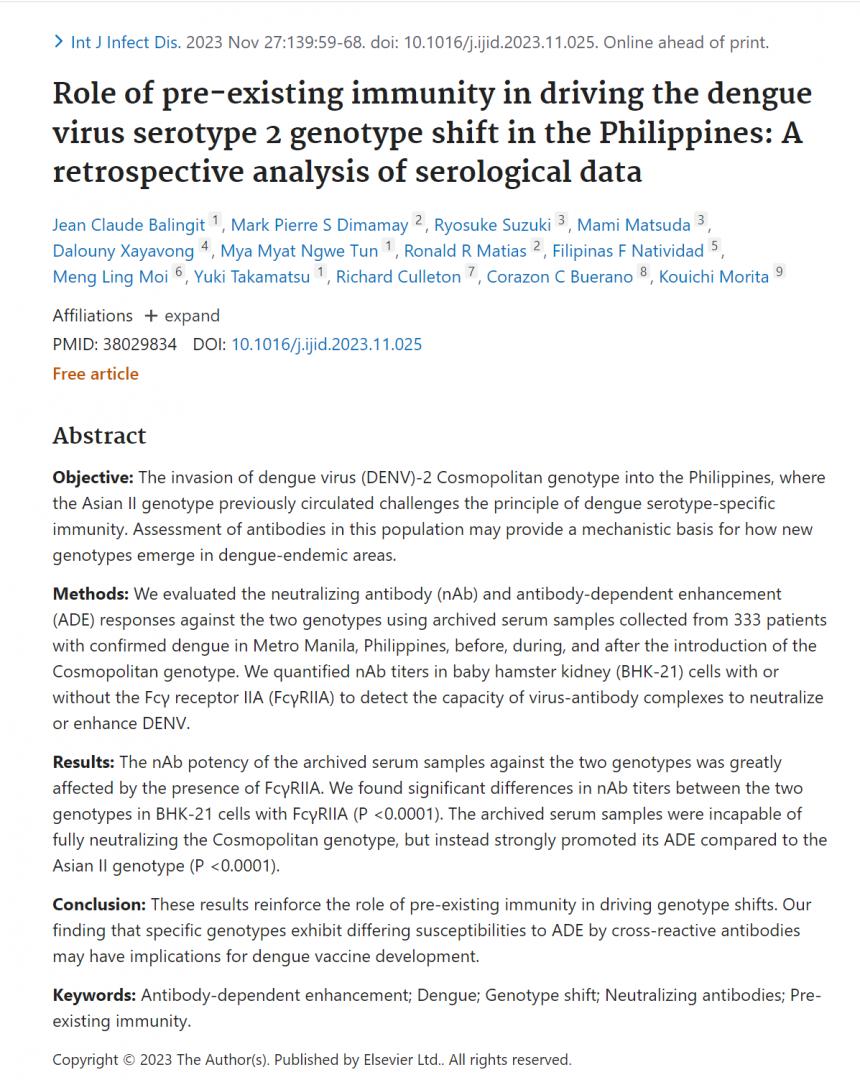

Objective: The invasion of dengue virus (DENV)-2 Cosmopolitan genotype into the Philippines, where the Asian II genotype previously circulated challenges the principle of dengue serotype-specific immunity. Assessment of antibodies in this population may provide a mechanistic basis for how new genotypes emerge in dengue-endemic areas.
Methods: We evaluated the neutralizing antibody (nAb) and antibody-dependent enhancement (ADE) responses against the two genotypes using archived serum samples collected from 333 patients with confirmed dengue in Metro Manila, Philippines, before, during, and after the introduction of the Cosmopolitan genotype. We quantified nAb titers in baby hamster kidney (BHK-21) cells with or without the Fcγ receptor IIA (FcγRIIA) to detect the capacity of virus-antibody complexes to neutralize or enhance DENV.
Results: The nAb potency of the archived serum samples against the two genotypes was greatly affected by the presence of FcγRIIA. We found significant differences in nAb titers between the two genotypes in BHK-21 cells with FcγRIIA (P <0.0001). The archived serum samples were incapable of fully neutralizing the Cosmopolitan genotype, but instead strongly promoted its ADE compared to the Asian II genotype (P <0.0001).
Conclusion: These results reinforce the role of pre-existing immunity in driving genotype shifts. Our finding that specific genotypes exhibit differing susceptibilities to ADE by cross-reactive antibodies may have implications for dengue vaccine development.
Keywords: Antibody-dependent enhancement; Dengue; Genotype shift; Neutralizing antibodies; Pre-existing immunity.